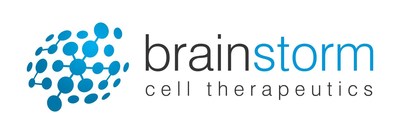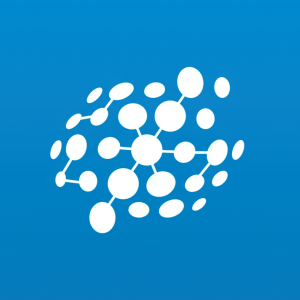BrainStorm Announces Presentation of NurOwn® Exosome Preclinical Data at ISCT 2022 San Francisco Meeting
BrainStorm Cell Therapeutics (NASDAQ: BCLI) presented at ISCT 2022 on May 4, 2022, highlighting the superior anti-inflammatory effects of NurOwn-derived exosomes over naïve mesenchymal stem cell-derived exosomes. Preclinical data demonstrated significant reductions in pro-inflammatory cytokines and enhancements in anti-inflammatory cytokines. Notably, treatment with NurOwn-derived exosomes led to a 6.4-fold reduction in MCP-1 and a 3.5-fold increase in IL10. These findings provide critical insights into the potential of NurOwn technology for treating neurodegenerative diseases.
- Presented compelling preclinical data indicating NurOwn-derived exosomes have more potent anti-inflammatory effects than naïve MSC-derived exosomes.
- Achieved statistically significant reductions in pro-inflammatory cytokines MCP-1 (6.4-fold) and IL6 (2.2-fold) with NurOwn-derived exosomes.
- NurOwn showed significant increases in anti-inflammatory IL10 (3.5-fold) expression.
- None.
Insights
Analyzing...
NurOwn-derived exosomes showed more potent anti-inflammatory effects in vitro compared to naïve mesenchymal stem cell-derived exosomes
NEW YORK, May 4, 2022 /PRNewswire/ -- BrainStorm Cell Therapeutics Inc. (NASDAQ: BCLI), a leading developer of cellular therapies for neurodegenerative diseases, announced the presentation today of a poster titled, "MSC-NTF derived small extracellular vesicles display superior macrophage immunomodulation compared with vesicles derived from naïve MSCs," at the International Society of Cell & Gene Therapy ISCT 2022 Meeting, being held from May 4-7, 2022 in San Francisco, CA. The poster will be presented by Dr. Kim Thacker, Senior Vice President, Medical Affairs and Clinical Innovation, BrainStorm Cell Therapeutics.

POSTER DETAILS:
Poster 313: MSC-NTF derived small extracellular vesicles display superior macrophage immunomodulation compared with vesicles derived from naïve MSCs.
Exosome/EV session: Wednesday May 4, 6:30 p.m. - 8:00 p.m. (Pacific Time)
POSTER HIGHLIGHTS:
Background:
- NurOwn-derived exosomes (Exo MSC-NTF) are small extracellular vesicles produced from bone-marrow derived mesenchymal stem cells (MSC) induced to secrete high levels of neurotrophic and other protective factors (MSC-NTF).
- Previously reported preclinical data demonstrated the superior efficacy of Exo MSC-NTF compared to exosomes produced from naïve MSCs (Exo MSC) when evaluated as a treatment for acute lung injury in mouse models.
Study Rationale and Objective:
- To better understand the mechanisms underlying the superior preclinical efficacy of Exo MSC-NTF versus Exo-MSC against acute lung injury, the effects of each on macrophage secretion of inflammatory factors were assessed. Assessments were performed in vitro with both M1 (pro-inflammatory) and M2 (anti-inflammatory) polarized macrophages.
Results:
- Exo MSC-NTF inhibited the expression and secretion of pro-inflammatory cytokines by M1 macrophages more potently than Exo MSC
- Exo MSC-NTF treatment led to statistically significant 6.4 and 3.3-fold reductions in the secretion and transcription (gene expression) of the pro-inflammatory cytokine MCP-1. More modest reductions of 3.6 and 1.6-fold, respectively, were observed following Exo-MSC treatment.
- Treatment of M1 macrophages with Exo MSC-NTF led to greater reductions in the transcription of the pro-inflammatory cytokine IL6 compared to treatment with Exo MSC (2.2-fold decrease versus 1.3-fold decrease).
- Exo MSC-NTF upregulated the expression and secretion of anti-inflammatory cytokines by M2 macrophages
- Exo MSC-NTF treatment led to statistically significant 3.5 and 5.4-fold fold increases in the secretion and transcription of the anti-inflammatory cytokine IL10. More modest increases of 2.6 and 3.4-fold, respectively, were observed following Exo-MSC treatment.
- Similar increases TGM2 transcription were observed with both Exo MSC-NTF and Exo-MSC treatment (2.7 and 2.6-fold, respectively).
- No effects on CD209 expression were observed with either Exo MSC-NTF or Exo-MSC treatment
Conclusion:
- Exo MSC-NTF showed more potent anti-inflammatory effects in vitro compared to Exo-MSC.
"These compelling preclinical data provide important insights into Exo MSC-NTF's mechanism of action," said Ralph Kern, MD MHSc, President and Chief Medical Officer of BrainStorm. "They suggest that the preclinical efficacy previously observed in acute lung injury models is due to the anti-inflammatory effects of Exo MSC-NTF on macrophage populations. Our scientific team is privileged to share this important finding at the International Society for Cell and Gene Therapy (ISCT), a globally recognized organization focused on translational aspects of developing cell-based therapeutics. We look forward to productive scientific engagements with experts at the meeting."
Chaim Lebovits, Chief Executive Officer of BrainStorm, added, "At BrainStorm, we are committed to exploring the full potential of our proprietary cell technology platform and continue to make key scientific progress that will enable us to address serious unmet medical needs. At the same time, we remain fully committed to advancing our cellular therapeutic pipeline in ALS and progressive MS."
The NurOwn® technology platform (autologous MSC-NTF cells) represents a promising investigational therapeutic approach to targeting disease pathways important in neurodegenerative disorders. MSC-NTF cells are produced from autologous, bone marrow-derived mesenchymal stem cells (MSCs) that have been expanded and differentiated ex vivo. MSCs are converted into MSC-NTF cells by growing them under patented conditions that induce the cells to secrete high levels of neurotrophic factors (NTFs). Autologous MSC-NTF cells are designed to effectively deliver multiple NTFs and immunomodulatory cytokines directly to the site of damage to elicit a desired biological effect and ultimately slow or stabilize disease progression.
About BrainStorm Cell Therapeutics Inc.
BrainStorm Cell Therapeutics Inc. is a leading developer of innovative autologous adult stem cell therapeutics for debilitating neurodegenerative diseases. The Company holds the rights to clinical development and commercialization of the NurOwn® technology platform used to produce autologous MSC-NTF cells through an exclusive, worldwide licensing agreement. Autologous MSC-NTF cells have received Orphan Drug designation status from the U.S. Food and Drug Administration (FDA) and the European Medicines Agency (EMA) for the treatment of amyotrophic lateral sclerosis (ALS). BrainStorm has completed a Phase 3 pivotal trial in ALS (NCT03280056); this trial investigated the safety and efficacy of repeat-administration of autologous MSC-NTF cells and was supported by a grant from the California Institute for Regenerative Medicine (CIRM CLIN2-0989). BrainStorm completed under an investigational new drug application a Phase 2 open-label multicenter trial (NCT03799718) of autologous MSC-NTF cells in progressive multiple sclerosis (MS) and was supported by a grant from the National MS Society (NMSS).
Safe-Harbor Statement
Statements in this announcement other than historical data and information, including statements regarding future clinical trial enrollment and data, constitute "forward-looking statements" and involve risks and uncertainties that could cause BrainStorm Cell Therapeutics Inc.'s actual results to differ materially from those stated or implied by such forward-looking statements. Terms and phrases such as "may," "should," "would," "could," "will," "expect," "likely," "believe," "plan," "estimate," "predict," "potential," and similar terms and phrases are intended to identify these forward-looking statements. The potential risks and uncertainties include, without limitation, BrainStorm's need to raise additional capital, BrainStorm's ability to continue as a going concern, prospects for future regulatory approval of BrainStorm's NurOwn® treatment candidate, the success of BrainStorm's product development programs and research, regulatory and personnel issues, development of a global market for our products and services, the ability to secure and maintain research institutions to conduct our clinical trials, the ability to generate significant revenue, the ability of BrainStorm's NurOwn® treatment candidate to achieve broad acceptance as a treatment option for ALS or other neurodegenerative diseases, BrainStorm's ability to manufacture and commercialize the NurOwn® treatment candidate, obtaining patents that provide meaningful protection, competition and market developments, BrainStorm's ability to protect our intellectual property from infringement by third parties, heath reform legislation, demand for our services, currency exchange rates and product liability claims and litigation; the impacts of the COVID-19 pandemic on our clinical trials, supply chain, and operations; and other factors detailed in BrainStorm's annual report on Form 10-K and quarterly reports on Form 10-Q available at http://www.sec.gov. These factors should be considered carefully, and readers should not place undue reliance on BrainStorm's forward-looking statements. The forward-looking statements contained in this press release are based on the beliefs, expectations, and opinions of management as of the date of this press release. We do not assume any obligation to update forward-looking statements to reflect actual results or assumptions if circumstances or management's beliefs, expectations or opinions should change, unless otherwise required by law. Although we believe that the expectations reflected in the forward-looking statements are reasonable, we cannot guarantee future results, levels of activity, performance, or achievements.
CONTACTS
Investor Relations:
John Mullaly
LifeSci Advisors, LLC
Phone: +1 617-429-3548
jmullaly@lifesciadvisors.com
Media:
Uri Yablonka
uri@brainstorm-cell.com
![]() View original content:https://www.prnewswire.com/news-releases/brainstorm-announces-presentation-of-nurown-exosome-preclinical-data-at-isct-2022-san-francisco-meeting-301539240.html
View original content:https://www.prnewswire.com/news-releases/brainstorm-announces-presentation-of-nurown-exosome-preclinical-data-at-isct-2022-san-francisco-meeting-301539240.html
SOURCE BrainStorm Cell Therapeutics Inc







